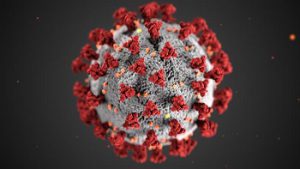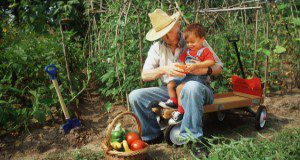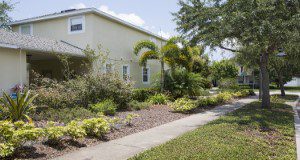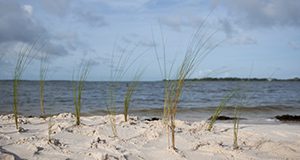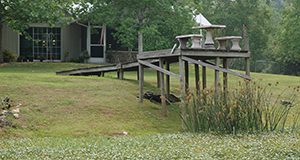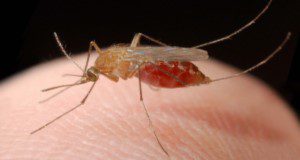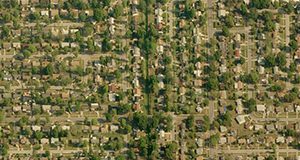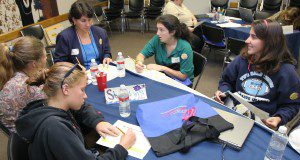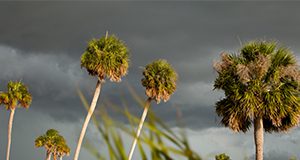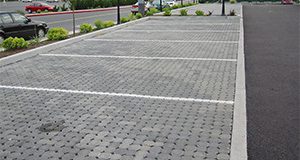Regardless of workspace or class setting, group work has gotten a reputation for being less than pleasant. However, when individuals have the opportunity to prepare for group work via understanding their personal strengths, expectations, and perspectives, the not-so-popular group work can often turn into pleasant, productive, and collaborative engagement. Because group dynamics shift and vary from group to group, there is a constant learning opportunity to understand how to work in groups successfully. This new 2-page publication of the UF/IFAS Department of Agricultural Education and Communication will identify simple yet effective strategies that can serve as foundational building blocks whenever preparing oneself or others for group work. Written by Cecilia E. Suarez and Jarred A. Shellhouse.
https://edis.ifas.ufl.edu/wc389
Category: Community Development
The Feasibility of Farmer-Led Cooperatives for Southwest Florida Farm to School Procurement
Florida's K–12 schools provide a potential opportunity to increase market channel options for small- and mid-sized diversified farms, but processing, storage, and distribution resources are extremely limited for smaller producers. This 9-page document serves as a model and case study with steps for producers and other stakeholders to conduct a feasibility study before forming a cooperative to sell local fruits and vegetables to schools and other institutional food-service outlets. Written by Jonathan Adam Watson, Danielle D. Treadwell, Catherine Campbell, and Ray Bucklin, and published by the UF/IFAS Department of Agricultural and Biological Engineering, March 2021.
https://edis.ifas.ufl.edu/ae555
The Road to Recovery #4: Evaluating Virtual Techniques to Reach Clientele and Promote Equity
This fourth publication in the Road to Recovery series explores the challenges Extension professionals may encounter in reaching clientele virtually during a pandemic. This new 4-page publication of the UF/IFAS Department of Agricultural Education and Communication discusses the concept of digital equity and provides recommendations to evaluate efforts to access and connect with key audiences. Written by Colby Silvert, Cody Gusto, John Diaz, and Glenn Israel.
https://edis.ifas.ufl.edu/wc387
The Road to Recovery #6: Evaluating Virtual Strategies to Build Community Capacity and Resilience
This sixth publication in the Road to Recovery series provides tips and strategies for Extension professionals interested in evaluating efforts to promote community capacity building and community resilience using virtual platforms. This new 5-page publication of the UF/IFAS Department of Agricultural Education and Communication was written by Cody Gusto, Colby Silvert, John Diaz, and Glenn Israel.
https://edis.ifas.ufl.edu/wc385
Leading Difficult Conversations Series #3: Creating a Safe Conversation Environment
This publication series is intended for leaders who bear the responsibility of having difficult conversations as part of their professional responsibilities. Earlier in this publication series, the foundational principles of preparing for difficult conversations were established: (1) defining the issue and (2) determining your motive for the conversation. Once those principles are put into practice, the next phase of having a difficult conversation is creating a safe environment for the conversation. Components of creating a safe environment include recognizing a conversation’s content and conditions, understanding the threats to a safe environment, and utilizing skills to overcome threats to restore safety. This new 3-page publication of the UF/IFAS Department of Agricultural Education and Communication was written by Christy Chiarelli.
https://edis.ifas.ufl.edu/wc384
An Introduction to Utilizing Community Leaders to Expand Resiliency Efforts Following a Disaster
In the southeastern United States, many agricultural, vulnerable, and rural communities (AVRCs) must cope with natural disasters regularly. These natural disasters not only harm communities, crops, and livelihoods, but also can negatively impact the mental health of affected individuals, including those living in AVRCs. The purposes of this new 3-page article are to (1) provide tips on identifying specific individuals who could qualify as community leaders and (2) provide details on how partnering with community leaders can be beneficial for mental health communication and outreach. Written by Lisa Lundy, Jacqueline Aenlle, Ricky Telg, Tracy Irani, Angie Lindsey, Ashley Mcleod-Morin, Michaela Kandzer, and Phillip Stokes, and published by the UF/IFAS Department of Agricultural Education and Communication.
https://edis.ifas.ufl.edu/wc383
Foundations of Effective Classroom Management
Classroom management can be challenging for teachers. While managing a classroom requires flexible approach, there are some basic strategies than can be used to make the classroom safe and engaging. This new 3-page article provides recommendations to teachers to manage student behavior in the agriculture classroom. Written by Kelsey M. Thornton, R. G. (Tre) Easterly III, and Ed Osborne, and published by the UF/IFAS Department of Agricultural Education and Communication.
https://edis.ifas.ufl.edu/wc381
The Road to Recovery #3: Facilitating Community Resilience for Effective Pandemic Response
This third publication in the Road to Recovery series provides information and recommendations to support Extension professionals’ ability to facilitate capacity building and resilience development for communities during COVID-19 and potential future pandemic situations. This new 5-page publication of the UF/IFAS Department of Agricultural Education and Communication was written by Cody Gusto, Colby Silvert, and John Diaz.
https://edis.ifas.ufl.edu/wc380
Developing Extension Programming to Help Low-Income Families Save Money and Energy: The Community Weatherization Coalition Model
This new 3-page publication of the Department of Agricultural Education and Communication is the first in a series that will help Extension agents, nonprofits, agency personnel, and other promoters of community development better understand both the issue of high utility bills among low-income residents and what they can do to help. This first publication provides an overview of one program approach taken by a group of volunteers in Alachua County, the Community Weatherization Coalition, which uses a model of trained “energy coaches.” Written by Paul Monaghan, Sarah Blucher, Marianne Schmink, Alane Humrich, Jennison Kipp, and Wendell Porter.
https://edis.ifas.ufl.edu/wc368
Online Sources for Sea Level Rise Education and Extension
The impacts of sea level rise on ecosystems and natural resources are a major concern in Florida, especially in low-lying coastal areas such as south Florida. Sea level rise can impact many aspects of Florida's economy, including urban development, agriculture, infrastructure, and natural areas. This 16-page document introduces, evaluates, and summarizes selected available online sources and tools to educate diverse stakeholders and concerned local residents on important aspects of sea level rise. Written by Young Gu Her, Ashley Smyth, Jiangxiao Qiu, Elias Bassil, Ulrich Stingl, and Laura Reynolds, and published by the UF/IFAS Department of Agricultural and Biological Engineering, June 2020.
https://edis.ifas.ufl.edu/ae543
Facilitating Community Change: Lessons from Climate Adaptation to Guide Extension Engagement
This 19-page publication written by Martha Monroe and Annie Oxarart and published by the UF/IFAS School of Forest Resources and Conservation provides Extension faculty in Florida with useful strategies to help communities understand, discuss, evaluate, and recommend potential solutions to current and future problems. While much of the research behind these strategies has been conducted in the context of climate adaptations in vulnerable communities and ecosystems, such as coastal fisheries, rainfed agriculture, and floodplain cities, the principles that underlie these processes are universal. The same strategies and guidelines can be tailored for any issue that requires the public to become more informed, generate options, and understand advantages and disadvantages of various choices. In these situations, Extension agents can facilitate a process of thoughtful deliberation to help communities find common ground and move toward finding solutions.
https://edis.ifas.ufl.edu/fr430
Using Social Media to Communicate in an Emergency Situation
The Prevent & Protect publication series focuses on the creation of different material formats to resonate with various audiences and ways to maximize their efficacy in communicating risk to the public about mosquito control. This new 4-page publication of the UF/IFAS Department of Agricultural Education and Communication explains how to engage in effective crisis communication and how to effectively use the Prevent & Protect emergency toolkit in a mosquito-related crisis situation. Written by Ashley Mcleod-Morin, Ricky Telg, Phillip Stokes, Alena Poulin, Shelli Rampold, Angela B. Lindsey, and Sandra Anderson.
https://edis.ifas.ufl.edu/wc363
Residential Irrigation Water Costs in Osceola County and Orange County, Florida
Interest in understanding water use and irrigation costs has risen in recent years. This case study is a 5-page evaluation of water use and associated costs for residential landscape irrigation in Osceola County and Orange County, Florida. Homeowners in central Florida can use the results to assess their water consumption and bills in relation to similar homes in the area. Written by Nick Taylor, Tricia Kyzar, Pierce Jones, and Kaitlin O. Robb Price, and published by the UF/IFAS Department of Agricultural and Biological Engineering, December 2019.
https://edis.ifas.ufl.edu/ae536
Exemplary Youth Leadership Series: Inspire a Shared Vision
This publication series is designed to outline strategies and experiences to expose youth to and engage them with leadership concepts. In this series, activities have been developed to introduce youth to Kouzes and Posner’s five practices of exemplary leaders. This new 2-page article allows students to engage with the second practice: inspiring a shared vision. Leaders shape the trajectory of their organization. The two outlined activities help students illustrate the idea of creating a unique vision and recruiting others to follow that vision. Written by Megan Stein and published by the UF/IFAS Department of Agricultural Education and Communication.
https://edis.ifas.ufl.edu/wc348
Exemplary Youth Leadership Series: Model the Way
This publication series is designed to outline strategies and experiences to expose youth to and engage them with leadership concepts. In this series, activities have been developed to introduce youth to Kouzes and Posner’s five practices of exemplary leaders. This new 2-page article allows students to engage with the first practice: modeling the way. Leaders must identify and exemplify values in order to be effective. The two outlined activities help students illustrate the idea of identifying values and modeling expectations. Written by Megan Stein and published by the UF/IFAS Department of Agricultural Education and Communication.
https://edis.ifas.ufl.edu/wc346
Exemplary Youth Leadership Series: Activities to Engage Youth With Practices of Exemplary Leaders
This publication series is designed to outline strategies and experiences to expose youth to and engage them with leadership concepts. In this series, activities have been developed to introduce youth to Kouzes and Posner’s five practices of exemplary leaders. Each article in the series directly relates to one of the practices and the topics of values, vision, teamwork, trust, and gratitude. This new 3-page article, the first in the series, introduces each practice and Kolb’s Experiential Learning Model. Written by Megan Stein and published by the UF/IFAS Department of Agricultural Education and Communication.
https://edis.ifas.ufl.edu/wc344
Estasyon Meteyo nan Jaden: Gid pou Enstalasyon ak Antretyen
Kondisyon meteyo yo ka jwe yon gwo wòl nan siksè oswa echèk aktivite agrikòl yo. Kiltivatè yo rekonèt sa e se sak fè yo toujou swiv bilten ak previzyon meteyo pou ka ede yo pran desizyon nan sa ki gen pou wè ak irigasyon, pwoteksyon kont fredi ansanm ak anpil lòt desizyon. This new 4-page publication is the Haitian Creole version of EDIS document AE532, Guidelines for Establishing and Maintaining Farm-Based Weather Stations in Haiti. Written by Caroline G. Staub, William Eisenstadt, William Blanc, Nicole Monval, Clyde W. Fraisse, William Lusher, George Braun, and Lee Staudt, and published by the UF/IFAS Department of Agricultural and Biological Engineering, May 2019.
http://edis.ifas.ufl.edu/ae531
Guidelines for Establishing and Maintaining Farm-Based Weather Stations in Haiti
Weather can significantly influence the success or failure of agricultural enterprises. Monitoring weather conditions can provide critical decision-making information. This new 4-page publication provides Haitian farmers with basic guidelines for installing and maintaining an on-farm weather station. Written by Caroline G. Staub, William Eisenstadt, William Blanc, Nicole Monval, Clyde W. Fraisse, William Lusher, George Braun, and Lee Staudt, and published by the UF/IFAS Department of Agricultural and Biological Engineering, May 2019.
http://edis.ifas.ufl.edu/ae532
Establishing a 501(c)(3) Nonprofit Organization: An Overview
This new 3-page document provides an overview of the process to establish a 501(c)(3) nonprofit organization and also discusses eligibility criteria and filing requirements. Written by Jacqueline Phillips, Jorge Ruiz-Menjivar, Jennifer A. Jones, and Julianne Shoup, and published by the UF/IFAS Department of Family, Youth and Community Sciences, April 2019.
http://edis.ifas.ufl.edu/fy1481
Permeable Pavement Systems: Technical Considerations
Permeable pavement systems are Green Stormwater Infrastructure practices that can reduce runoff while supporting vehicle and pedestrian traffic. This new 8-page document provides technical details of permeable pavement systems, such as application, system elements, design, installation, operation, maintenance, crediting, and costs, in order to inform planners, engineers, landscape architects, local government officials, and other professionals in the built environment about the considerations for implementing and maintaining permeable pavements. Written by E. Bean, M. Clark, and B. Larson, and published by the UF/IFAS Department of Agricultural and Biological Engineering, April 2019.
http://edis.ifas.ufl.edu/ae530


